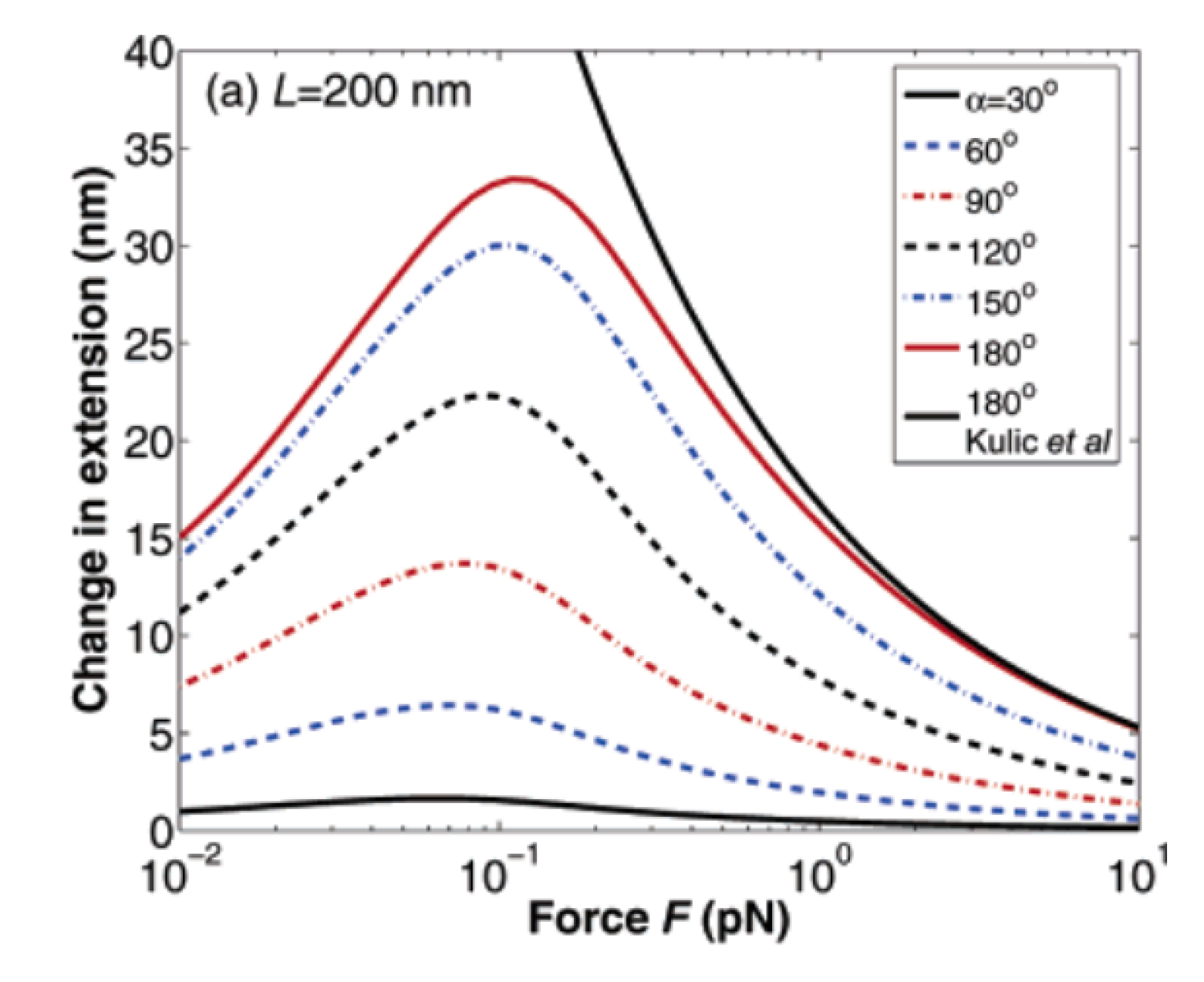Entropic elasticity of DNA with a permanent kink

Jinyu Li, Philip C. Nelson, and Meredith D. Bettertion (2006). Macromolecules 39, 8816-8821. Download.
Many proteins interact with and deform double-stranded DNA in cells. Single-molecule experiments have studied the elasticity of DNA with helix-deforming proteins, including proteins that bend DNA. These experiments increase the need for theories of DNA elasticity which include helix-deforming proteins. Previous theoretical work on bent DNA has examined a long DNA molecule with many nonspecifically binding proteins. However, recent experiments used relatively short DNA molecules with a single, well-defined bend site. Here we develop a simple, theoretical description of the effect of a single bend. We then include the description of the bend in the finite wormlike chain model (FWLC) of short DNA molecules attached to beads. We predict how the DNA force-extension relation changes due to formation of a single permanent kink, at all values of the applied stretching force. Our predictions suggest that high-resolution single-molecule experiments could determine the bend angle induced upon protein binding.

